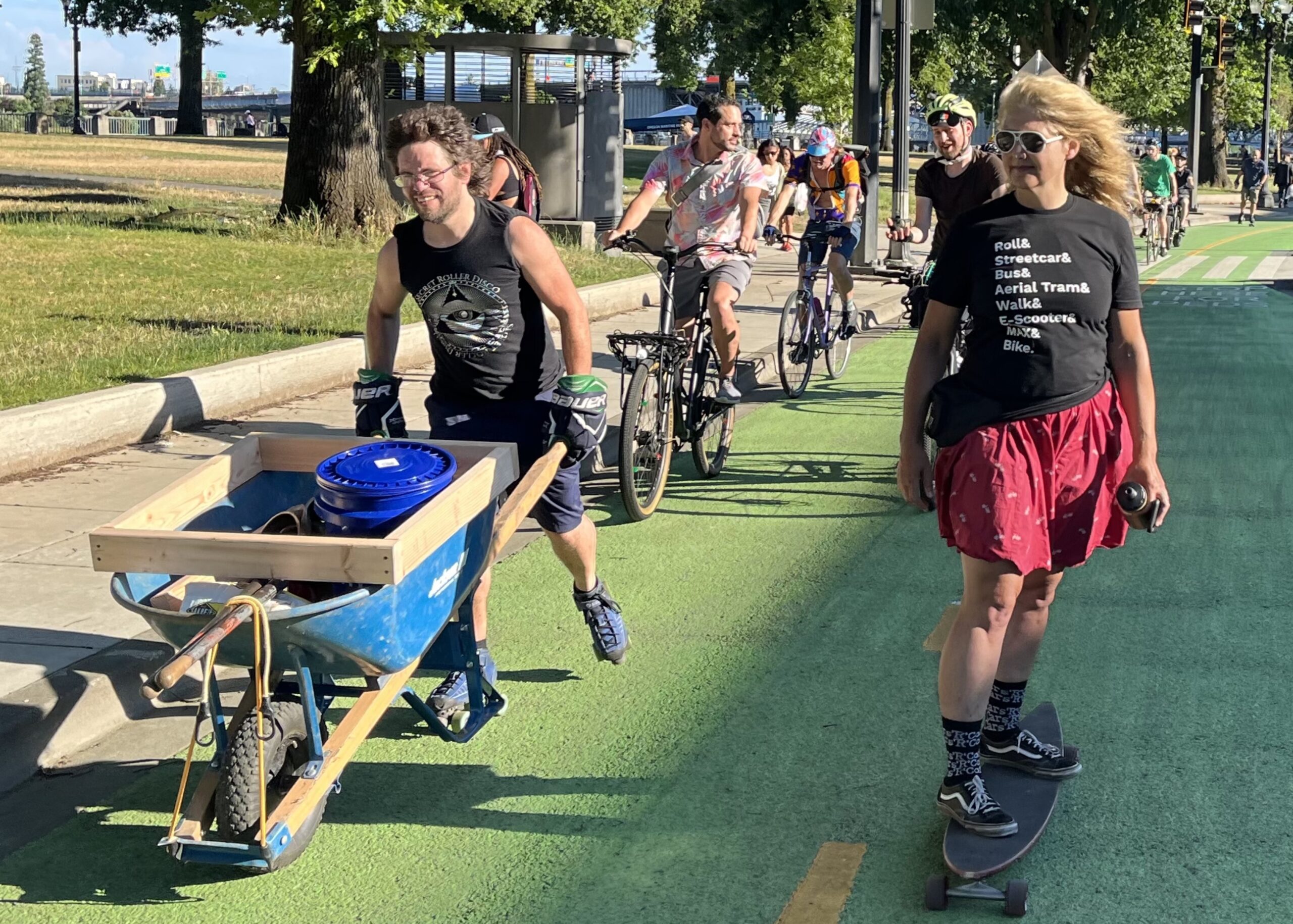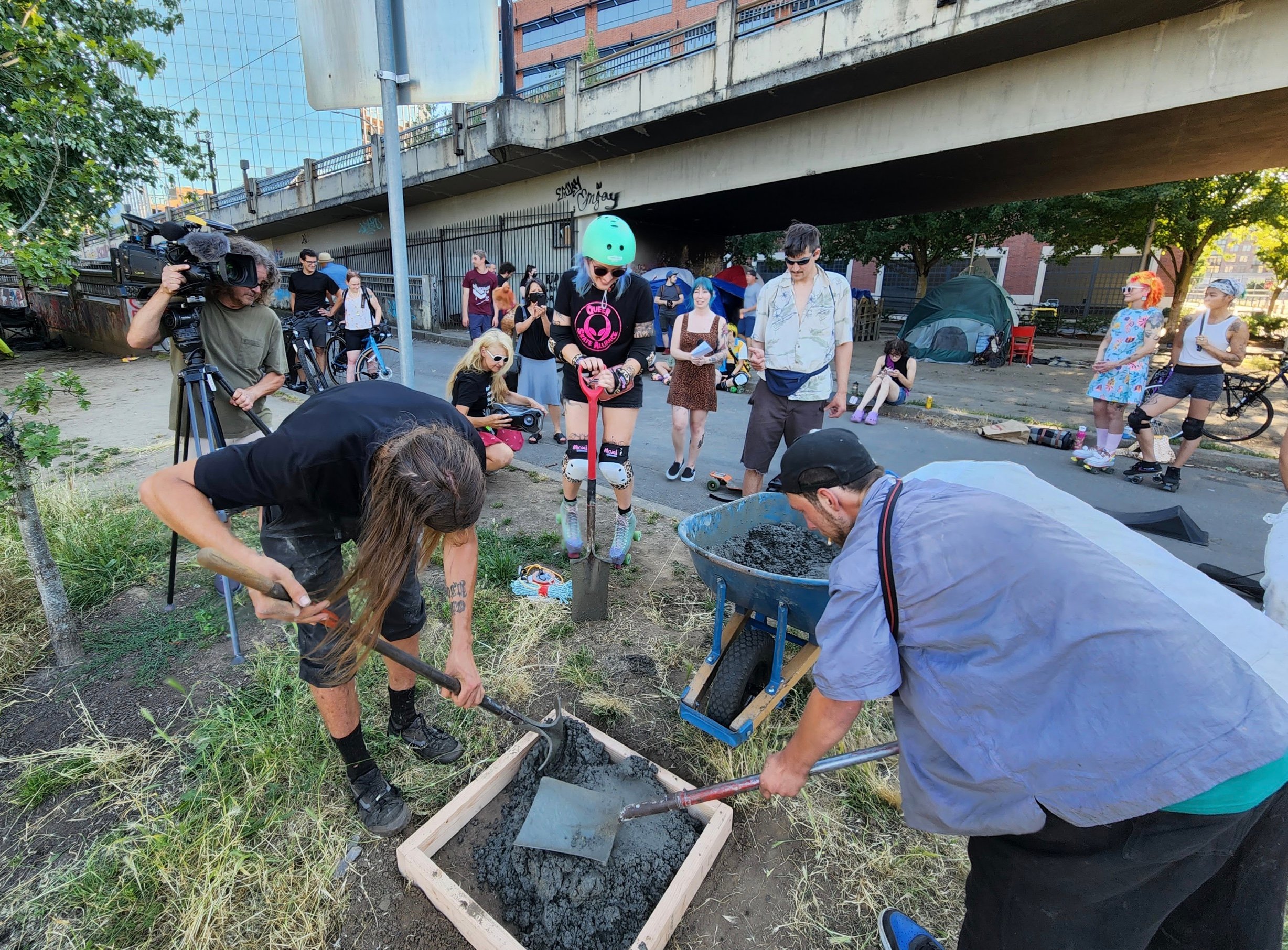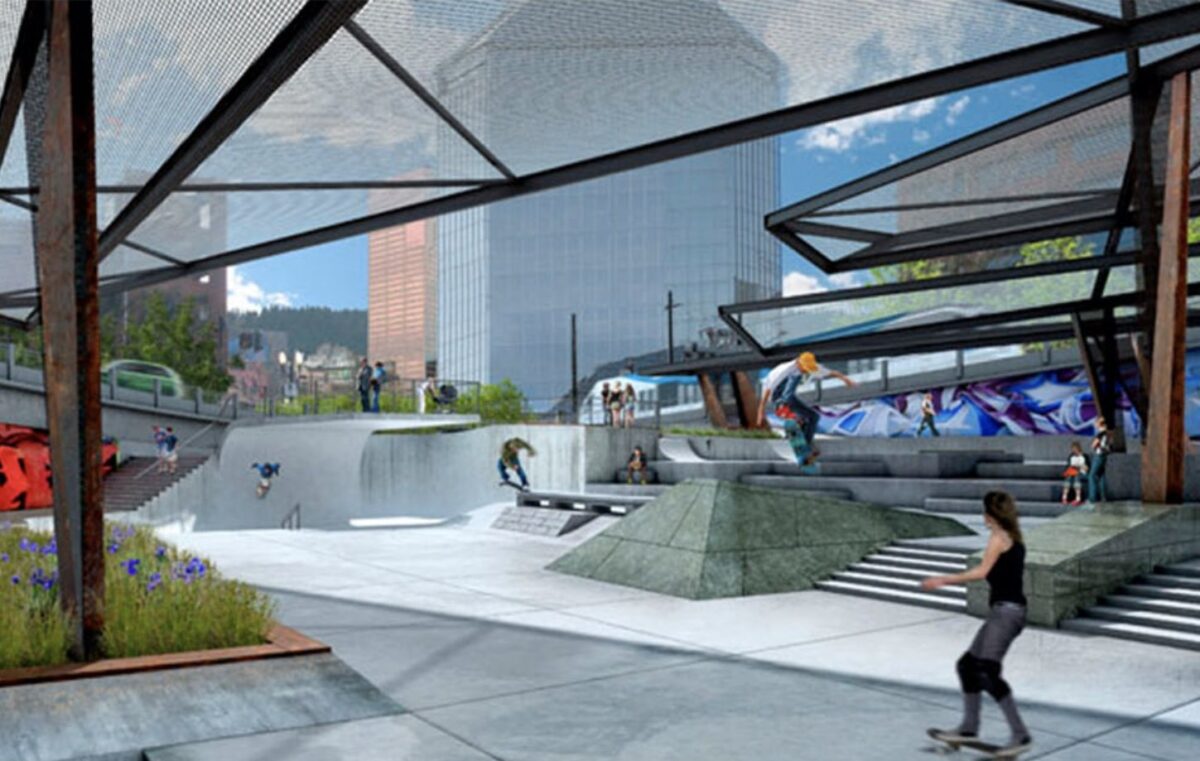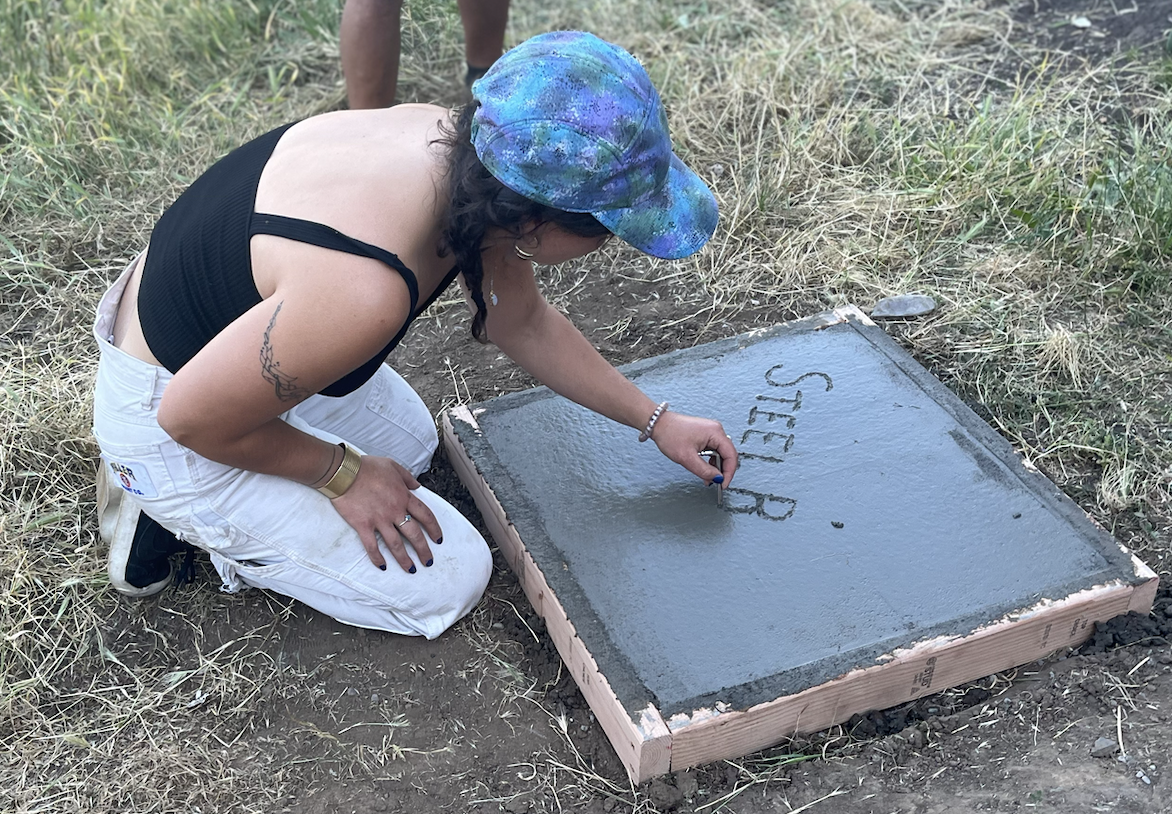

Construction of a long-awaited skatepark in Portland’s Old Town has officially begun. Well – sort of.
The proposed Steel Bridge Skatepark, which will be located in a vacant lot in Old Town bordered by NW Naito Parkway, 1st Avenue, and Everett, has been a part of Portland’s Skate Park Master Plan for years. But despite an award-winning design and a plan for the site endorsed by City Council in 2011, the vacant lot is still just a field – no half-pipes or bowls in sight.
Yesterday, advocates for the skate park held a ceremony to ‘break ground’ on the park. As an act of protest they created a small ramp with a wheelbarrow’s worth of concrete and even held a preemptive ribbon cutting.
Skaters hope this symbolic groundbreaking will bring awareness to the need for this skate park and convince city officials to start making some headway on the project.
“We advocate for multimodal transportation options of all kinds… And skateboarding is as big part of that as bicycling.”
– Madi Carlson, The Street Trust
A group of people from organizations like Portland’s chapter of Community in Bowls (CIB) and The Street Trust rolled on bikes, skateboards, and roller skates together from Salmon Street Springs to the lot in Old Town, where advocates discussed why this skatepark is important to them.
CIB Portland, an organization working to provide “an inclusive space for people, especially underrepresented groups, to quad skate together and form a community.” Sarah Sands, a CIB administrator, said this skatepark would create a space for people to feel “safe, included and supported.”
Madi Carlson, Community Engagement Manager at The Street Trust, said she thinks it’s important to recognize skating of all kinds as a viable transportation mode. In order to do that, there needs to be more spaces for people to hone their skills and cultivate a like-minded community.
“Skate advocacy is transportation advocacy,” Carlson said. “We advocate for multimodal transportation options of all kinds, including skateboarding, that are equitable, accessible, safe, and promote climate justice. And skateboarding is as big part of that as bicycling.”
During the pandemic, skating – especially roller skating – experienced a huge surge in interest nationwide. And Portland’s roller skating scene has blown up with the advent of a weekly Secret Roller Disco session. Skating advocates want to keep this enthusiasm going.
“Covid has separated us and made us distant with friends and family. Now should be a time for healing, and we need tools to facilitate that,” Tope Sosanya, a BMXer who runs advocacy group PDX Skateparks, said at the ceremony. “Skate parks are a great platform for people to find community, friendship and creativity.”
The design plan for the Steel Bridge Skatepark includes a cover, which would make the space available during Portland’s rainy winters.
“If this park was covered, we would be able to expand our programming from just happening in the summer dry months to year round,” Sands said.
Advocates said they will continue pushing for this skatepark and working on DIY efforts to get construction moving.
The Burnside Skatepark just across the river is an example of a successful DIY skatepark that began as an illegal venture but remained in place once the city realized how popular it was. This time, advocates say they want the city’s help, but they’re going to put in the work to make it happen, “One bag of concrete at a time.”
Longtime skate advocate Ryan Hashagen (who you might’ve seen on roller skates among a sea of bicyclists at Pedalpalooza events), said he’s optimistic about the future of this park.
“The City of Portland is going to build this skatepark,” Hashagen said. “There’s no doubt in my mind.”




